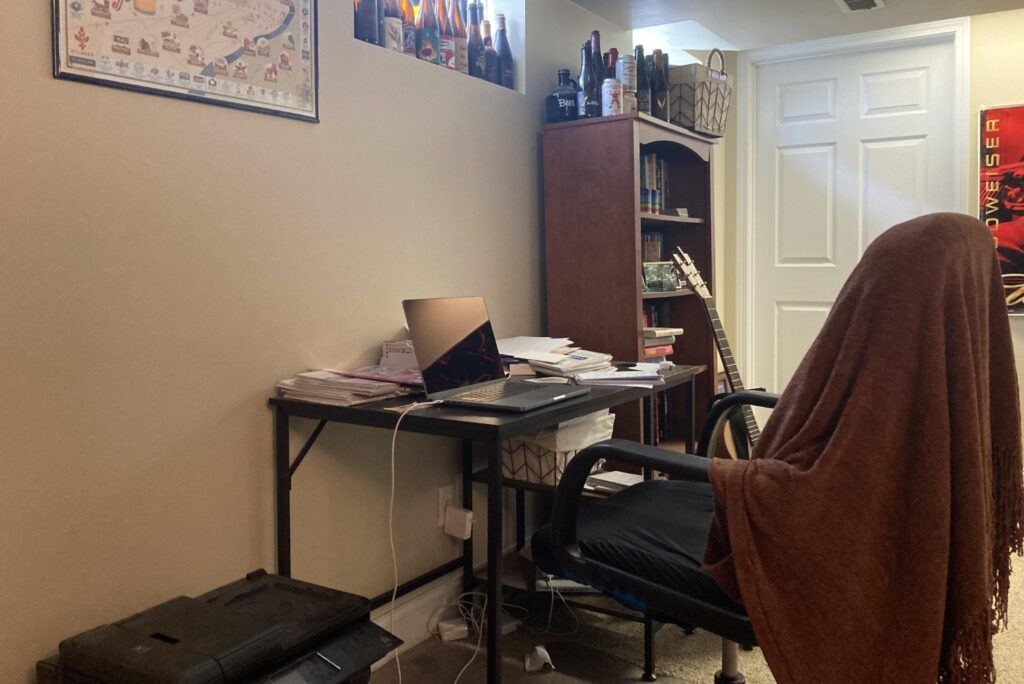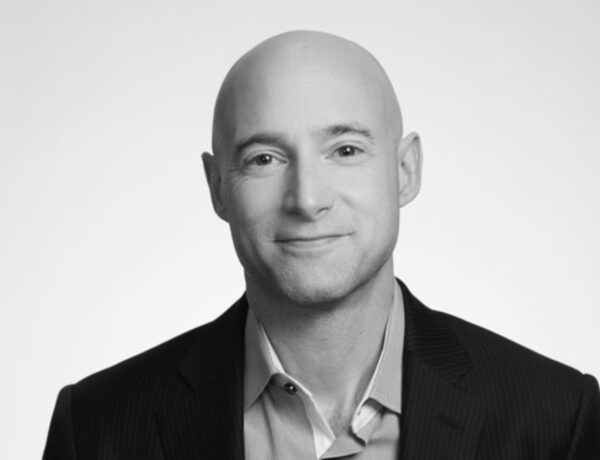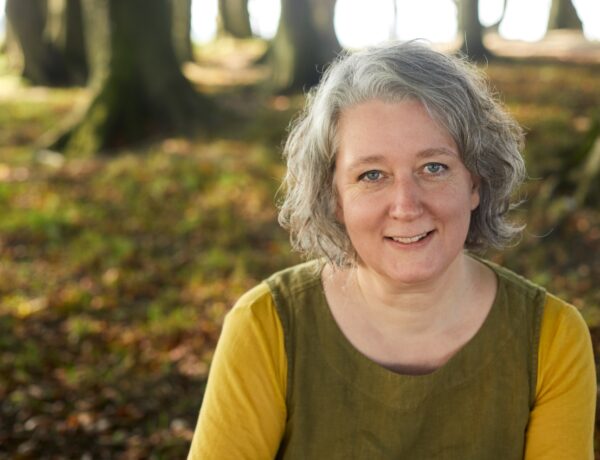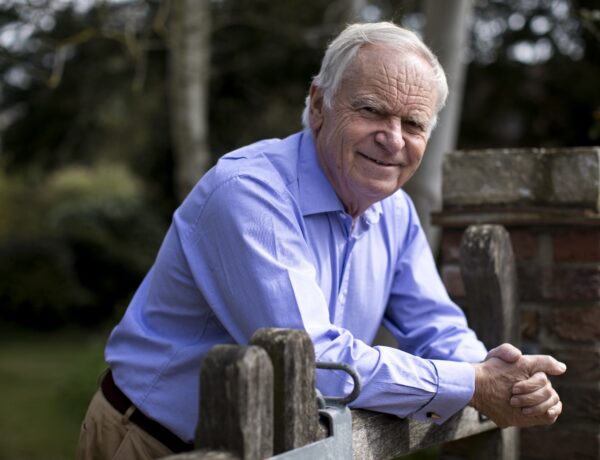Tony is a freelance writer based in St. Louis, Mo. His work has appeared in Popular Mechanics, Pacific Standard, Men’s Health, ESPN The Magazine, GQ, The Columbia Journalism Review, USA Today, Atlanta,Indianapolis Monthly, and St. Louis.
He is a five-time finalist for the City and Regional Magazine Association Writer of the Year award. He was anthologized in Next Wave: America’s New Generation of Great Literary Journalists. He is a graduate of the University of Missouri School of Journalism and a Missouri native.
Hi Tony, thanks for joining us today! How did you get started in journalism? Can you tell us a little bit about your background and what led you to pursue this career?
I sort of backed into the career, actually. I went to a small high school, and there were no school newspaper or journalism classes. I just read my parents’ TIMEs and Newsweeks and wrote a bunch of fiction, song lyrics (of course, I was in a band), and book reports on literature. I went to Mizzou because it was relatively close to home. I liked to write, and my choices were English or Journalism, so I chose the latter thinking it might be more functional.
When I got to the Columbia Missourian, the MU Journalism School’s training ground, I chose to go into sports writing because I liked sports. And there I discovered two things: First, I had a talent for it. Second, and more importantly, I met a group of writers who inspired and motivated the hell out of me. They turned me on to Gary Smith, Tom Junod, and dozens of other great writers and just the culture of literary nonfiction. We’d meet at the bar and just talk about writing and reading. We still do to this day (over text, not over beers, unfortunately). There was no going back.
How has the field of journalism changed since you started your career? What challenges do you see facing the industry in the future?
It’s changed a ton. After a brief stint in newspapers, I switched to magazines as a feature writer. That was a staff position — a rarity nowadays. Before I left the full time mag industry, I’d had to become an editor to keep my writing job. Eventually one of the magazines I worked for wanted me to transition to writing semi-daily for the website — indicative of the direction of the entire industry toward a digital future.
That, in and of itself, isn’t necessarily bad (it just wasn’t for me). But because outlets haven’t quite figured out how to make the web as profitable as print, the pay for journalism these days is a challenge. Publications can’t really afford to pay for the time, resources, and legal protection to do big sweeping crime and investigative stories that I’d cut my teeth on. As a freelancer, I can rarely afford to take on a story like that anymore.
You’ve written for a variety of publications, from sports magazines to health publications. How do you decide what topics to write about and how do you adapt your writing style to fit the publication’s audience?
I’m just a naturally curious person. I wonder about a lot of different things. And I get passionate about a lot of things. I love the culture of beer, but I also love music. I’m fascinated by science and technology, but I also get a kick writing about fast food and professional wrestling.
At the core, every story is about people — those who are doing things or are impacted by the things being done. And I’ve found that if you approach every story as a slightly knowledgeable but openly inquisitive reporter, do the research and legwork, and write it cleanly and transparently with your voice and in a straightforward structure, you can tell any story effectively.
Can you talk about your experience being anthologized in Next Wave: America’s New Generation of Great Literary Journalists? What was it like to be recognized alongside other talented writers?
It was an honour, especially when you look at what many of those writers have gone on to accomplish in the last decade (Eli Saslow just won his second Pulitzer, for crying out loud). It was validating, humbling, and motivating. But more than anything, it sort of strengthened the bond I already had with many of those writers (a few of them, Seth Wickersham, Wright Thompson, and Justin Heckert had been part of that Mizzou sports crew that made me fall in love with the craft in the first place) and it created links to a few I didn’t know. Community is very important in this business. At least it is to me.
“The Last Trawlers” tells the story of a way of life that is fading away. How did you first become interested in the shrimping industry along Georgia’s coast, and what inspired you to write about it?
I befriended a photographer. Jamie Guy, who had ties to Atlanta magazine when I got there, approached my editor with the story. He said he was just driving by the area, saw the shrimp boats, and took his camera down to meet some of the shrimpers — just a curious dude, my kind of people. He went out on the boat with them and told me about his experiences. He knew the family aspect. My background in business journalism gave me the extra insight to put that family story in an economic perspective. Jamie is a great photographer and collaborator. A natural-born storyteller.
The article describes how shrimping is a family tradition passed down through generations. What do you think is at stake when this way of life disappears, and what can be done to preserve these cultural traditions for future generations?
As a writer, I wonder every day if my way of life is disappearing before my own eyes (Hello, ChatGPT!). I think tradition and heritage are important, but I also think that there comes a point when it’s futile to battle change just because of inertia or nostalgia. We have to adapt. We have to grow. I grew up in a small town and worked in several others. I’ve seen what happens when people resist inevitable change. It’s very complicated. When it comes to reporting, it’s really not my place to judge. It’s my job to put it in proper perspective, and I feel I did that with the shrimping story.
What was the most challenging part of writing this article for you?
Every article is challenging in its own way — there’s nothing more daunting than a blank page. But I’d be lying if I said it was a struggle to get this one on the page. I worked hard on it, but between Jamie Guy’s advance reporting, his help in getting the family to trust me and welcome me aboard, and just spending the time on the boat, I had notebooks full of great stuff. It was also the rare story where I recognized my lede and my ending as they were happening. Then you add in a great editor, Steve Fennessy, and it just works.
Can you share some advice for aspiring journalists who are just starting out? What skills do you think are essential for success in this field?
I think the most important thing is connectivity. Increasingly, whether you’re a staffer or a freelancer, this job is a remote job, which has a lot of perks and flexibility. But I’ve got editors I’ve worked with for four years and have never spoken to on the phone, much less met in person. It is vital to form and nurture relationships. That means with sources, with editors and clients, and with colleagues. Surround yourself with people who make you better and be open to that opportunity to grow and improve when it arises.
It’s especially important if you’re starting out as a freelancer without having worked on staff. When you’re a staffer, your editor has a vested interest in making you better at your job. But when you’re an independent contractor, working job to job with any client, you have to remember that the editor (who is most likely overworked and under-resourced) is focused on making that story the best it can be — not you as a writer. And that’s no knock on that editor, it’s just the reality. It’s hard to find a mentor when you’re starting out in the field — especially via email. You have to seek out that mentor. (And when you find them, don’t let them go!)
Also: Read. Read, read, read, read. It’s the most accessible way to broaden vocabulary; experience different approaches, structures, and perspectives; and find new ideas. I get the feeling writers don’t read as much anymore.
If you could have a conversation with any author throughout history about their writing routine and creative process, who would that person be?
I’m not sure about this one. Most of the writers I love have written about it themselves.
I’d love to know about the books you’re reading at the moment. What have been some of your favourite recent reads?
I just finished The Wager by David Grann, a true master. It’s about a British naval shipwreck in the 1700s and the ensuing drama that unfolded among the castaways (next-level reporting). Also recently read Orwell’s Roses, a biography/literary critique of the author told through his rose garden by Rebecca Solnit. Great insights into the man and the craft — she just makes it seem so effortless. And in fiction, I’m reading Lost Children Archive by Valeria Luiselli. It’s about a family falling apart, the connections we make through and around our work (it’s centred on two journalists), how that work tends to seep into our personal lives, and it’s told in such an imaginative way, both in how it’s structured and in the prose itself.
What does your current writing workspace look like?
It depends. I think this is because I was a sportswriter at first, filing from press boxes, cars, hotel rooms and lobbies, and locker-room hallways, but I can write pretty much anywhere. In my house, where I do most of my writing these days, I have three spots. When it’s nice, I get out on my deck and write in my rocking chair.
When it’s sunnier, I sit at our kitchen table where I’m surrounded by windows. But my primary office is in our furnished basement. There, I have a minimalist desk, no drawers, just two shelves and a compact writing surface. It’s cluttered (organised chaos, I tell my wife), with stacks of papers and dog-eared books for reference. My office chair is cheap and 25 years old, but still comfortable, rolling around on the plastic pad that protects the carpet. I’m surrounded by bookshelves full of books, magazines, comics, and stacks of New Yorkers I will eventually get around to reading (I swear!).
Behind me is a futon that I can lay on for a rest. And always there’s a guitar beside me. When I need to untangle my mind, I find that playing and singing (using multiple parts of my brain to keep chords and lyrics straight while also controlling the mechanics of my mouth, arms, and fingers, completely occupies my brain — and maybe triggers something creative (it’s a mystery to me, but a necessity).




No Comments